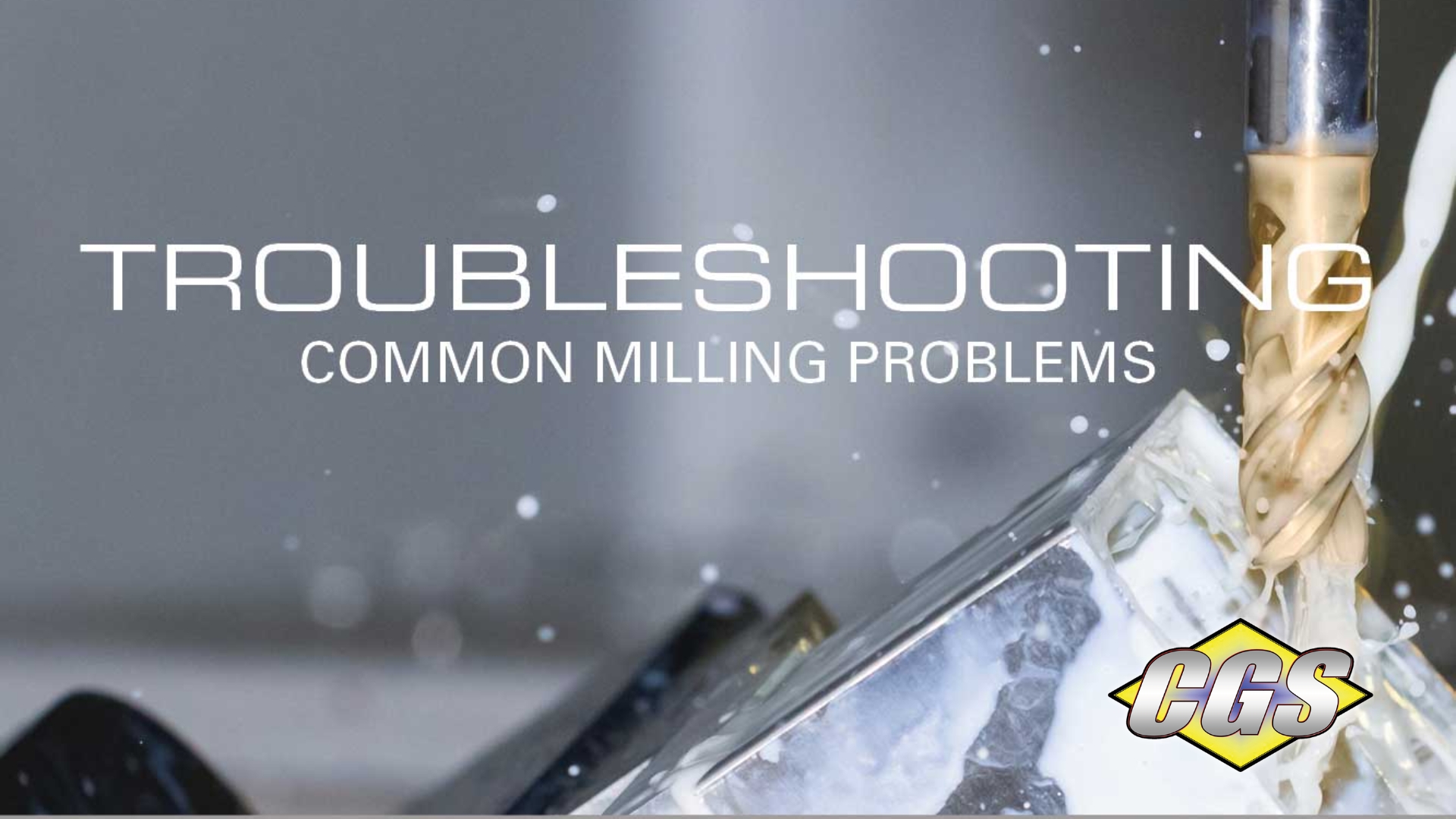An end mill has a lifespan determined by its usage, material specificity, and coating. For CNC machinists, premature wear and tool breakage can be avoidable issues. These issues can lead to poor part finishes, machine downtime, and even scrapped parts. Understanding the problems these tools face in the spindle is a key first step in troubleshooting these issues, if they occur.
Here's a breakdown of some common problems and solutions:
Common Milling Problems:
- Excessive Tool Wear: This can be caused by various factors:
- Hard Work Material: Use a coated end mill designed for tougher materials.
- Incorrect Speeds and Feeds: Reduce spindle speed and use more coolant, or increase feed rate based on manufacturer recommendations.
- Wrong Helix Angle: Change to an end mill with a more appropriate helix angle for the material.
- Chipping: This often occurs due to:
- High Feed Rate or Slow Milling Speed: Reduce feed rate and increase RPM.
- Too Much Tool Wear: Replace the end mill sooner.
- Improper Helix and Relief Angle: Adjust speeds and feeds, and consider a different end mill design.
- Chatter: Vibrations during cutting can lead to chatter. Here's what might be causing it:
- High Feed and Speed: Reduce both.
- Poor Rigidity: Ensure a rigid setup by using a shorter tool, deeper shank hold, or a different tool holder. Check for machine or spindle runout.
- Rough Finish: A poor surface finish can result from:
- High Feed Rate or Slow Speed: Adjust speeds and feeds to recommended settings.
- Excessive Tool Wear: Replace the end mill.
- Burrs: These unwanted raised edges can be caused by:
- Dull Cutting Edge: Replace the end mill.
- Improper Cutting Angle: Ensure the correct end mill geometry for the material.
Additional Tips:
- Refer to the manufacturer's recommendations for specific end mills and materials for optimal speeds and feeds.
- Use coolant or a cold air gun to manage chip formation and heat buildup.
- Regularly inspect your end mills for wear and replace them promptly to avoid further problems.



